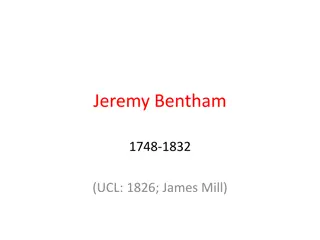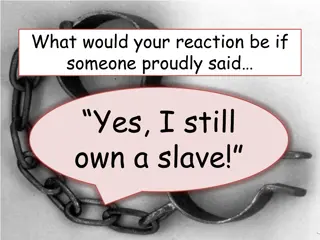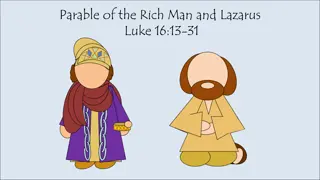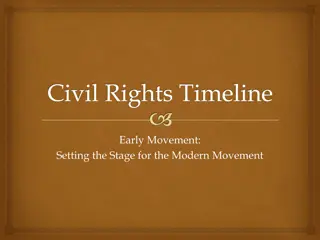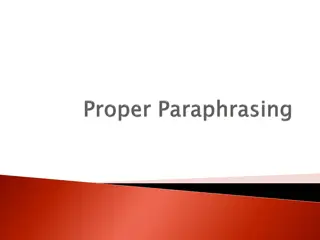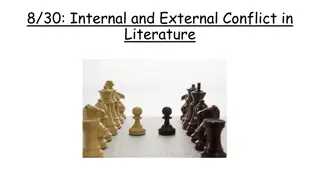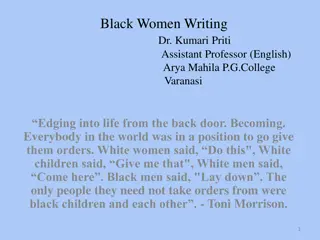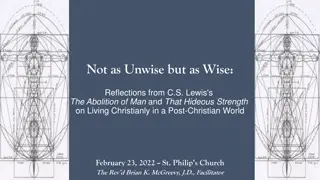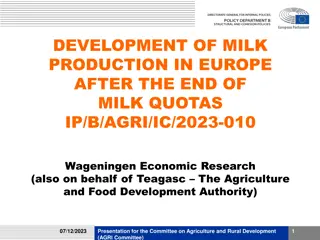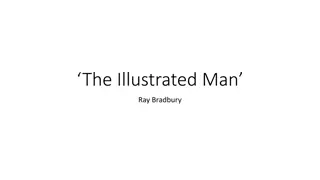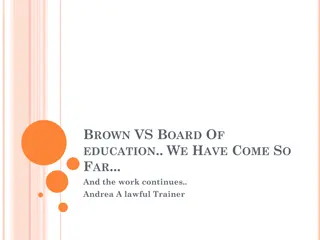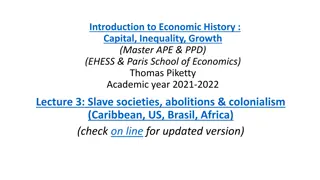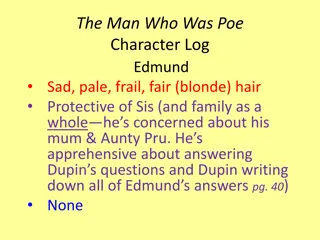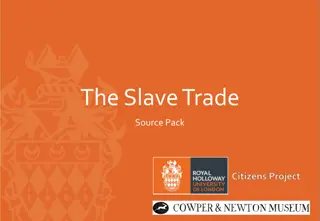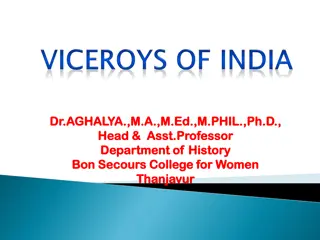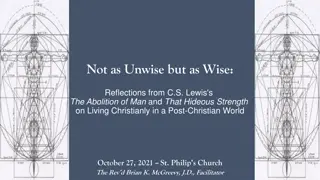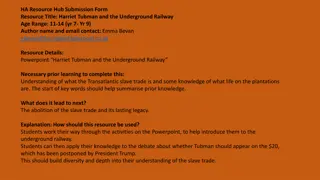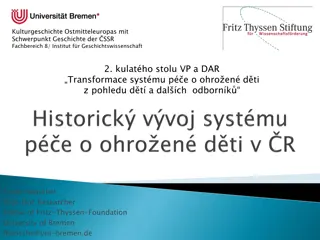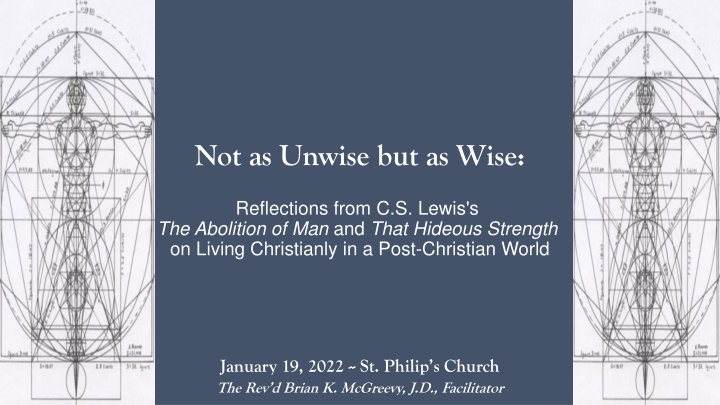
Reflections from C.S. Lewis's The Abolition of Man and That Hideous Strength
Explore living Christianly in a post-Christian world through the lens of C.S. Lewis's works. Delve into themes of light versus darkness, wisdom, and uncovering truth in a society veiled by darkness. Join St. Philip's Church for insightful discussions on applying Lewis's teachings to our modern lives amid cultural shifts.
Download Presentation

Please find below an Image/Link to download the presentation.
The content on the website is provided AS IS for your information and personal use only. It may not be sold, licensed, or shared on other websites without obtaining consent from the author. If you encounter any issues during the download, it is possible that the publisher has removed the file from their server.
You are allowed to download the files provided on this website for personal or commercial use, subject to the condition that they are used lawfully. All files are the property of their respective owners.
The content on the website is provided AS IS for your information and personal use only. It may not be sold, licensed, or shared on other websites without obtaining consent from the author.
E N D
Presentation Transcript
Not as Unwise but as Wise: Reflections from C.S. Lewis's The Abolition of Man and That Hideous Strength on Living Christianly in a Post-Christian World January 19, 2022 -- St. Philip s Church The Rev d Brian K. McGreevy, J.D., Facilitator
For at one time you were darkness, but now you are light in the Lord. Walk as children of light (for the fruit of light is found in all that is good and right and true), and try to discern what is pleasing to the Lord. Take no part in the unfruitful works of darkness, but instead expose them. For it is shameful even to speak of the things that they do in secret. But when anything is exposed by the light, it becomes visible, for anything that becomes visible is light. Therefore it says, Awake, O sleeper, and arise from the dead, and Christ will shine on you. Look carefully then how you walk, not as unwise but as wise, making the best use of the time, because the days are evil. Therefore do not be foolish, but understand what the will of the Lord is. Ephesians 5: 8-17
How to approach this class: --On the beach --Snorkeling --Scuba diving --Email list How to read That Hideous Strength: --One chapter at a time --Make a chart of characters --Look for and note where themes from The Abolition of Man appear What we ll be doing each week: --Examining context and establishing a framework for appreciating these books --Unpacking the meaning of Lewis s works --Exploring their relevance for today --Considering how we can respond with practices of Hope and of Wisdom rooted in the Scriptures
REVIEW FROM PREVIOUS CLASSES Summary: Main theme of each chapter in The Abolition of Man 1. Men without Chests : The importance of objective values and the poison of subjectivism 2. The Way : Why the Tao, or Natural Law, is the sole source of all value judgments 3. The Abolition of Man : Man s control of Nature is in reality a means for some men (Conditioners) to control other men, using Nature as their instrument. To see through (deconstruct) all things is not to see at all. PLOT SUMMARY OF THE RANSOM TRILOGY Adapted from Taylor Dinerman, The Space Review -- Out of the Silent Planet, tells how Ransom, a Cambridge don on holiday, is kidnapped by the physicist Weston and his partner Devine, a sleazy businessman, and taken to Malacandra (Mars), supposedly as a human sacrifice. Once on Mars he escapes, hides in a Martian village, and learns to speak the local language. He learns that each planet has its own tutelary spirit essentially an angel or archangel called an Oyarsa, who rules under the authority of God. Earth, unfortunately, is the central battleground between Good and Evil and is ruled by a fallen angel, a dark Oyarsa. -- Perelandra, the name Lewis gives to Venus, is also the title of the second book in the series. Retelling the story of Adam and Eve, it is the most explicitly biblical of the three. Weston plays the role of the serpent sent to tempt the woman who is to become the mother of the world into rejecting God s will. Ransom is sent by the Oyarsa to challenge the evil one and to save Venus from the fate of Earth. -- That Hideous Strength combines a sordid tale of intra-university politics, Arthurian legend, and spiritual combat. In a small British University town, one of the colleges finds itself seduced and then engulfed by the newly established National Institute for Coordinated Experiments (N.I.C.E). This organization is secretly controlled by a pair of initiates, who plan to revive the wizard Merlin from his long, enchanted slumber and to use his powers for their own malevolent purposes. To find him they need the services of a seer ; Jane Studdock, the wife of Mark Studdock, a shallow young sociologist entrapped by promises of power, money, and above all membership in the secret, elite clique that controls the N.I.C.E. Ransom leads a small eccentric company of friends who, with the aid of the Oyarsa, take on and defeat them.
The shadow of that hyddeous strength, sax myle and more it is of length (Sir David Lyndsay: from Ane Dialog, describing the Tower of Babel) This is a tall story about devilry, though it has behind it a serious point which I have tried to make in my Abolition of Man. from Preface to That Hideous Strength CHARACTERS IN ORDER OF APPEARANCE --Jane (Tudor) Studdock She had not been to church since her schooldays until she went there six months ago to be married. Jane married Mark six months before the story begins, leaving behind a career she enjoyed. Since then, she works on her doctoral thesis on John Donne, but makes no progress. Before marriage, they had endless talks, but since marriage, she feels alone in solitary confinement. She does not wish for children, as they would impede her career as a scholar. She has nightmares of a man beheaded by having his head twisted off by some other men speaking French. She is disturbed when she sees a picture in a newspaper of precisely what she dreamed. Her dream also includes an ancient bearded Druidical man. Francois Alcasan - An Arabian radiologist who poisoned his wife. He was beheaded for this crime. However, before his execution, Jane sees him in a dream being beheaded by twisting his head off. Jane saw in a man in a dream approach him and speak with him in French (which she did not understand). --Merlin - the ancient Druidical bearded man in a mantle from Arthurian days who also appears in Jane s dream. Merlin has a pagan past but has also been deeply influenced by early British Christianity. -Mark (Gainsby) Studdock - A Fellow in Sociology for 5 years at Bracton College. He talks with Sub-Warden Curry and discovers, to his delight, he is now part of the inner circle, the progressive element. He married his wife Jane six months ago, and they are drifting apart. Mark learns that Lord Feverstone influenced Mark s appointment to Bracton. --
--Sub-Warden Curry - Curry serves as the effective head of Bracton College, who thinks the NICE "marks the beginning of a new era - the really scientific era." Curry wants to cultivate Mark to use him to support his agenda for the college that he is working on with Lord Feverstone. --James Busby Bursar at Bracton College and another member of the 'Progressive Element . --Canon Jewel A sensible and admired elderly Fellow at Bracton College who is a retired clergyman and a brilliant intellect, but excluded by the 'Progressive Element' for being an 'obstructionist'. --Lord Feverstone - His real name is Dick Divine, who has appeared in the prior stories of the Space Trilogy as a villain. Mark discovers Feverstone as the person responsible for getting his position at Bracton College over another prospect, Denniston. Once Curry and Busby, the Bursar, leave, Mark discovers Feverstone holds them in disdain, but finds them useful in running He joins in cultivating Mark as part of the inner circle of the progressive element in the college. --Arthur Denniston - an old friend of Mark s from university who is also a sociologist and Mark s professional rival. When explaining to Mark why they chose him over Denniston, Sub-Warden Curry says, One sees now that Denniston would never have done. Most emphatically not. A brilliant man at that time, of course, but he seems to have gone quite off the rails since then with all his Distributivism and what not. They tell me he s likely to end up in a monastery. --The Dimbles a professor of English literature at Northumberland College and his wife, with whom Jane Studdock studied and socialized as a college student. The Dimbles live adjacent to Bragdon Wood. --Grace Ironwood The seemingly stern but kind psychologist and doctor who helps Jane interpret her dreams. Inspired by the J rnvi r ("Iron-Wood") of Norse mythology (female giants), her name is softend with the Christian name "Grace". --Ivy Maggs part-time housekeeper for Jane Studdock, who considers her a terrible talker. --John Wither Deputy Director of the N.I.C.E. characterized by vague conversation that is impossible to pin down and a sense of not being fully present; his eyes seem to indicate that he is far away elsewhere. --William Hingest (a.k.a. Bill the Blizzard ) a brilliant scientist from Bracton College who is now employed at the N.I.C.E. but has decided to leave there and warns Mark of the corrupt powers of the N.I.C.E. --Professor Filostrato an eminent Italian physiologist who works for the N.I.C.E. who takes an interest in Mark
REVIEW OF CHAPTER 1, SALE OF COLLEGE PROPERTY --Jane and her dreams --Mark and the Inner Circle at Bracton College --The proposal to sell Bragdon Wood and Merlin s Well to the N.I.C.E. --The Dimbles and rumors of Merlin REVIEW OF CHAPTER 2, DINNER WITH THE SUBWARDEN --Mark and being included in Feverstone s confidence in disdain of Curry and Busby --The N.I.C.E. as the ultimate Inner Circle/Ring , focused on taking over and reconditioning the human race, controlling and subduing Nature, and exerting control over the interplanetary wars --Jane s fears and vulnerability, which she later rejects as unworthy --Mark s journey to Belbury and Jane s journey to St. Anne s-on-the-Hill SUMMARY OF CHAPTER 3, BELBURY AND ST. ANNE S-ON-THE-HILL Upon arriving at Belbury, the Headquarters of the N.I.C.E., Lord Feverstone takes Mark to meet John Wither, the Deputy Director of the N.I.C.E., who exemplifies the mastery of double-speak (and Lewis s fondness for using names to convey meaning). He speaks many words but without really saying anything at all, or he says one thing while meaning another. He praises Mark effusively (while at the same time not really seeming to know who he is) and repeatedly reassures Mark that he has nothing to worry about at all. Mark simply wants to know what his job would be if he came to the N.I.C.E. but can never get a direct answer out of Wither, and wonders throughout the interview, "What are we talking about?" Afterward, Mark is unclear whether or not he has been offered a job. He tries to ask Lord Feverstone, who rudely abandons Mark and goes off with other staff. Meanwhile, it is clear that lunch is being served in the dining room, but
Mark is anxious and alone and not sure whether to enter. He spots William Hingest, a prominent chemist at Bracton, also known as Bill the Blizzard, and is relieved to have someone to talk to. However, Hingest says right away that he is leaving the N.I.C.E. and advises Mark to do the same. Mark is torn and confused when he is introduced to Steele and Cosser, who direct the work of the N.I.C.E. in Mark s discipline of sociology, and they say they know nothing about his appointment and they don t need him. A famous physiologist, Professor Filostrato, recognizes Mark. He advises Mark to stay and not worry about a job description or about Steele and Cosser. Filostrato says that all will become apparent and that the work of the N.I.C.E. is what's important - too important to pass up. He advises that the only two people in the N.I.C.E. Mark needs to pay attention to are Wither, the Deputy Director, and "Fairy" Hardcastle, the head of the internal N.I.C.E. police. The "Fairy" is "a big woman in a black, short-skirted uniform." Meanwhile, Jane is admitted through the gate to St. Anne's-on-the-Hill, and meets Grace Ironwood, the person the Dimbles wanted her to see about her dreams. Miss Ironwood dresses all in black with her hands folded on her knees, just as she had appeared in Jane s dream the night before. Ironwood reassures Jane that her dreams are not an indication that she is mentally ill but rather that she is a visionary, who sees things in dreams as they happen or before they happen. Jane's maiden name was Tudor, and Ironwood explains that several of Jane s ancestors in this family had the same gift. Ironwood urges Jane to use her gift in service of the company at St. Anne's, as recommended by the Dimbles, and warns Jane that there are others wanting to use her gift for subversive purposes and evil. Jane is almost convinced, but then her pride and wounded vanity and dislike of mystery and circumstances beyond her control cause her to rebel and to flee, saying she wants nothing more to do with Ironwood or the Company.
A Journey Rich in Symbolism An observer placed at the right altitude above Edgestow that day might have seen far to the south a moving spot on a main road and later, to the east, much nearer the silver thread of the Wynd, and much more slowly moving, the smoke of a train. The spot would have been the car which was carrying Mark Studdock towards the Blood Transfusion Office at Belbury, where the nucleus of the N.I.C.E. had taken up its temporary abode. The very size and style of the car had made a favourable impression on him the moment he saw it. The upholstery was of such quality that one felt it ought to be good to eat. And what fine, male energy (Mark felt sick of women at the moment) revealed itself in the very gestures with which Feverstone settled himself at the wheel and put his elbow on the horn, and clasped his pipe firmly between his teeth! The speed of the car, even in the narrow streets of Edgestow, was impressive, and so were the laconic criticisms of Feverstone on other drivers and pedestrians. Once over the level crossing and beyond Jane s old college (St. Elizabeth s), he began to show what his car could do. Their speed became so great that even on a rather empty road the inexcusably bad drivers, the manifestly half-witted pedestrians and men with horses, the hen that they actually ran over and the dogs and hens that Feverstone pronounced damned lucky, seemed to follow one another almost without intermission...The long, straight nose and the clenched teeth, the hard bony outlines beneath the face, the very way he wore his clothes, all spoke of a big man driving a big car to somewhere where they would find big stuff going on. And he, Mark, was to be in it all [They] arrived at Belbury a florid Edwardian mansion which had been built for a millionaire who admired Versailles. At the sides, it seemed to have sprouted into a widespread outgrowth of newer cement buildings, which housed the Blood Transfusion Office. The smoke which our imaginary observer might have seen to the east of Edgestow would have indicated the train in which Jane Studdock was progressing slowly towards the village of St. Anne s , a train that sizzled and exuded steam from beneath the footboards and in which most of the passengers seemed to know one another. On some days, instead of the third coach, there might be a horse-box, and on the platform there would be hampers containing dead rabbits or live poultry, and men in brown bowler hats and gaiters, and perhaps a terrier or a sheepdog that seemed to be used to
travelling. In this train, which started at half-past one, Jane jerked and rattled along an embankment whence she looked down through some bare branches and some branches freckled with red and yellow leaves into Bragdon Wood itself and thence through the cutting and over the level crossing at Bragdon Camp and along the edge of Brawl Park (the great house was just visible at one point) and so to the first stop at Duke s Eaton. Here, as at Woolham and Cure Hardy and Fourstones, the train settled back, when it stopped, with a little jerk and something like a sigh. And then there would be a noise of milk cans rolling and coarse boots treading on the platform and after that a pause which seemed to last long, during which the autumn sunlight grew warm on the window pane and smells of wood and field from beyond the tiny station floated in and seemed to claim the railway as parts of the land. Passengers got in and out of her carriage at every stop; applefaced men, and women with elastic side boots and imitation fruit on their hats, and schoolboys. Jane hardly noticed them: for though she was theoretically an extreme democrat, no social class save her own had yet become a reality to her in any place except the printed page. And in between the stations things flitted past, so isolated from their context that each seemed to promise some unearthly happiness if one could but have descended from the train at that very moment to seize it: a house backed with a group of haystacks and wide brown fields about it, two aged horses standing head to tail, a little orchard with washing hanging on a line, and a rabbit staring at the train, whose two eyes looked like the dots, and his ears like the uprights, of a double exclamation mark. At quarterpast two she came to St. Anne s, which was the real terminus of the branch, and the end of everything. The air struck her as cold and tonic when she left the station. Although the train had been chugging and wheezing up-hill for the latter half of her journey, there was still a climb to be done on foot, for St. Anne s is one of those villages perched on a hilltop which are commoner in Ireland than in England, and the station is some way from the village. A winding road between high banks led her up to it. As soon as she had passed the church she turned left, as she had been instructed, at the Saxon Cross. There were no houses on her left only a row of beech trees and unfenced ploughland falling steeply away, and beyond that the timbered midland plain spreading as far as she could see and blue in the distance. She was on the highest ground in all that region. Presently, she came to a high wall on her
right that seemed to run on for a great way: there was a door in it and beside the door an old iron bell-pull. A kind of flatness of spirit was on her. She felt sure she had come on a fool s errand; nevertheless she rang. When the jangling noise had ceased there followed a silence so long, and in that upland place so chilly, that Jane began to wonder whether the house were inhabited. Then, just as she was debating whether to ring again or to turn away, she heard the noise of someone s feet approaching briskly on the inside of the wall. Some Thoughts on What Lewis Is Doing Here --the sportscar v. the train: who is in control and where can you go? --the fast car heading to destruction and the slow train heading to redemption --Saint Anne, mother of the Virgin Mary, and patron saint of mothers --role of people and surroundings: to be endured as obstacles and run over without thought, or to be regarded deliberately and appreciated for their beauty and story that they tell? --significance of names: Woolham (ancient Saxon family whose motto is I Will Defend My God ), Cure Hardy (a son of King Arthur in Malory s tale), Fourstones (site of Baden-Powell s first scout camp; Boy Scouts were notoriously banned by Hitler as subversive to the State ) --Mark is desperate to get into Belbury and the N.I.C.E.; Jane is desperate to stay out of the Company of St. Anne s Significant quotations: -- big man driving a big car to somewhere where they would find big stuff going on pride goes before a fall -- the autumn sunlight grew warm on the window pane and smells of wood and field from beyond the tiny station floated in and seemed to claim the railway as parts of the land Beauty in God s creation as redemptive -- each seemed to promise some unearthly happiness if one could but have descended from the train to seize it: a house backed with a group of haystacks and wide brown fields about it, two aged horses standing head to tail, a little orchard with washing hanging on a line, and a rabbit staring at the train, whose two eyes looked like the dots, and his ears like the uprights, of a double exclamation mark unearthly happiness spiritual joy from Beauty in creation if we will but notice
--"she came to St. Annes, which was the real terminus of the branch, and the end of everything. The air struck her as cold and tonic when she left the station the Terminus and End of everything, cold tonic air (Norse) -- As soon as she had passed the church she turned left, as she had been instructed, at the Saxon Cross. a church and a cross are in her path; Saxon cross often at location of a monastery -- She was on the highest ground in all that region. high ground, holy mountain -- Presently, she came to a high wall on her right that seemed to run on for a great way: there was a door in it and beside the door an old iron bell-pull. the walled garden (Marian imagery) and the door (John 10:7) THEMES IN THE FIRST SECTIONS OF CHAPTER 3 Doublespeak is a characteristic of Evil and evildoers, and we go along with it or ignore it at our peril. Ceaseless, dog-eat-dog competition, flattery, and strife are rife at the N.I.C.E. (just like Screwtape!) Extraordinary spiritual gifts are real, but one must be very careful in using them and realize that the powers of darkness desire to corrupt them Pride and a strong need for control can cause us to miss the Will of God
Practices of Hope and of Wisdom Finally, brothers, whatever is true, whatever is honorable, whatever is just, whatever is pure, whatever is lovely, whatever is commendable, if there is any excellence, if there is anything worthy of praise, think about these things. What you have learnedand received and heard and seen in me practice these things, and the God of peace will be with you. Philippians 4:8-9 1. Embrace real pleasures that focus your heart and mind on Beauty, Truth, and Goodness. You make known to me the path of life; in your presence there is fullness of joy; at your right hand are pleasures forevermore. (Ps. 16:11) Do not be deceived, my beloved brothers. Every good gift and every perfect gift is from above, coming down from the Father of lights, with whom there is no variation or shadow due to change. (James 1:16-17) To bestow on them a crown of beauty instead of ashes, the oil of joy instead of mourning, and a garment of praise instead of a spirit of despair. (Isaiah 61:3) 2. Be alert to your environment and the unseen spiritual forces at work around you. Be alert and of sober mind. Your enemy the devil prowls around like a roaring lion looking for someone to devour. (1 Peter 5:8)For we do not wrestle against flesh and blood, but against the rulers, against the authorities, against the cosmic powers over this present darkness, against the spiritual forces of evil in the heavenly places. (Ephesians 6:12) 3. Seek to discern when the presence of the Lord is surrounding you in your physical environment and live into that realization. Do not come near; take your sandals off your feet, for the place on which you are standing is holy ground. (Ex. 3:5) And Jacob awaked out of his sleep, and he said, Surely the LORD is in this place; and I knew it not. (Gen. 28:16-17) 4. Be alert to whom God is placing in your path. Devote yourselves to prayer, keeping alert in it with an attitude of thanksgiving; praying at the same time for us as well, that God will open up to us a door for the word, so that we may speak forth the mystery of Christ. (Col. 4:2-3) But sanctify Christ as Lord in your hearts, always being ready to make a defense to everyone who asks you to give an account for the hope that is in you, yet with gentleness and reverence. (I Peter 3:15)
Yet Not I, But Through Christ in Me What gift of grace is Jesus my redeemer There is no more for heaven now to give He is my joy, my righteousness, and freedom My steadfast love, my deep and boundless peace To this I hold, my hope is only Jesus For my life is wholly bound to His Oh how strange and divine, I can sing, "All is mine" Yet not I, but through Christ in me No fate I dread, I know I am forgiven The future sure, the price it has been paid For Jesus bled and suffered for my pardon And He was raised to overthrow the grave To this I hold, my sin has been defeated Jesus now and ever is my plea Oh the chains are released, I can sing, "I am free" Yet not I, but through Christ in me The night is dark but I am not forsaken For by my side, the Saviour He will stay I labour on in weakness and rejoicing For in my need, His power is displayed To this I hold, my Shepherd will defend me Through the deepest valley He will lead Oh the night has been won, and I shall overcome Yet not I, but through Christ in me With every breath I long to follow Jesus For He has said that He will bring me home And day by day I know He will renew me Until I stand with joy before the throne To this I hold, my hope is only Jesus All the glory evermore to Him When the race is complete, still my lips shall repeat Yet not I, but through Christ in me! --Jonny Robinson, Rich Thompson, Michael Farren 2018
For at one time you were darkness, but now you are light in the Lord. Walk as children of light (for the fruit of light is found in all that is good and right and true), and try to discern what is pleasing to the Lord. Take no part in the unfruitful works of darkness, but instead expose them. For it is shameful even to speak of the things that they do in secret. But when anything is exposed by the light, it becomes visible, for anything that becomes visible is light. Therefore it says, Awake, O sleeper, and arise from the dead, and Christ will shine on you. Look carefully then how you walk, not as unwise but as wise, making the best use of the time, because the days are evil. Therefore do not be foolish, but understand what the will of the Lord is. Ephesians 5: 8-17

